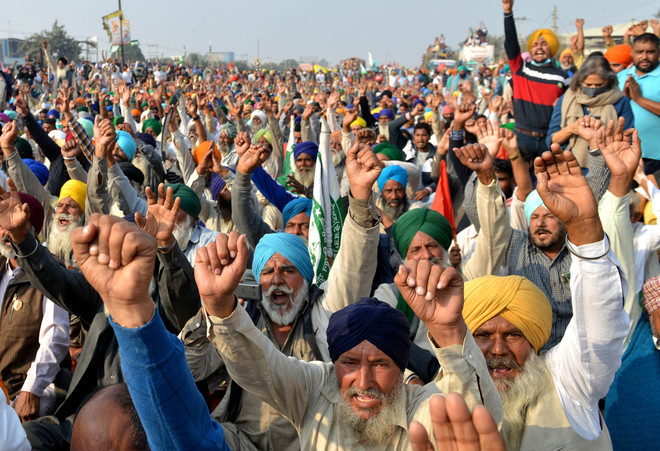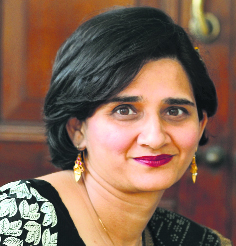
Where are you from? Where do you belong? As children growing up in Ranchi and later Kolkata, my brothers and I had learnt that the correct answer to this question was “Punjab”. We did not understand at that age why we were asked this question so frequently. We were a migrant family, but children don’t see demarcations in identities till we teach them differences.
On the other hand, when we would actually visit our grandparents and extended family in the small towns and villages of Punjab during our school vacations, we would be asked the same question with equal curiosity. In this context, the correct answer was no longer “Punjab”. We stood out as Hindi-speaking children from a non-Punjabi, urban culture and were now identified by the city where we lived and went to school.
As I grew up and began to travel on my own, I would often reply to the question by saying, “My parents are from Punjab.” At 21, when I returned home after a brief stint of volunteering in Jhabua, I gave myself a new state to belong to. “I am from Madhya Pradesh,” I would say, in my resistance to having to choose one cultural identity when my truth was that I belonged equally to multiple places and not only to the one I was supposed to name.
As I walk through the surreal scenes of the farmers’ protest sites at Tikri and Singhu on the outskirts of Delhi, I realise that the Punjab of my childhood has returned to my life this year. In January, we watched with awe as busloads of Punjabis arrived at the anti-CAA protest site at Shaheen Bagh in Delhi with the determination to offer solidarity by cooking meals for the protesters and sharing their stories.
In February, I travelled to Malerkotla with Harsh Mander and Navsharan Singh to participate in one of the largest anti-CAA rallies organised by farmers’ unions in north India. My grandfather had been the Postmaster in Malerkotla for a few years when we used to visit my Dadi and him as pre-teen children. Now I had come back with my own 11-year-old daughter to attend a rally of solidarity. I looked out at the busy streets of the town, searching for familiar remnants of my own childhood.
“Hindu, Muslim ladnay nahi denge,
San santalis hone nahi denge.”
This popular slogan at the rally had evoked the horror of Partition violence and vowed to defy any renewed efforts to divide communities on communal lines for political gain. “We will not allow 1947 to be repeated,” speakers had repeated from the stage. Attended by Hindus, Muslims and Sikhs of Punjab, the rally had challenged the inherent divisiveness of the CAA, NPR and NRC processes.
At the ongoing farmers’ agitation in Delhi, I meet many of the same people we had met in Malerkotla. Lachhman Singh Sewewala of the Punjab Khet Mazdoor Union reminds me that he had been conducting the programme on the stage that day. I show him photos I had taken on my phone. There is a sense of wonder that we are meeting again in such changed circumstances.
“When something threatens your very survival, people have no choice but to take to the streets,” Sewewala says, alluding to both the anti-CAA movement as well as the farmers’ agitation. “People realise that these new laws will destroy their livelihood and dignity. Why else would lakhs of people leave the comfort of their homes and spend days and nights camping on the highway in these extreme conditions?”
One of the memories that comes back to me is from Makhu, my grandmother’s village in Ferozepur district. Dadi’s family was uprooted from their homes in 1947 and crossed the border as refugees. Dadaji found them in camps in Dhuri and brought them home with him to Ferozepur, where he had been transferred from Kasur. My father was a favourite cousin in that home and we were treated like royalty by our aunts and uncles, who would laugh at everything we said as if we were little jokers. My brothers and I tried our hand at flying kites on the roof of that home. I saw my elder brother pick up the tricks from a girl cousin. We watched Krishi Darshan, the daily programme for farmers on Doordarshan, sitting on a durrie in that courtyard, surrounded by older neighbours. For the first time I had understood who the audience of that show was. In our city home, we had always ignored this daily broadcast for India’s farmers.
As my husband and I walk on the roads at Tikri, watching farmers camped on both sides, I translate snatches of conversation for him. I stare at slogans written in Gurmukhi and try to read them letter by letter. We owe our people the same hospitality they would extend to us when we meet them in their homes. I realise now that I may have resisted belonging to Punjab, but Punjab belongs to me.
— The writer is an author and filmmaker [email protected]
Join Whatsapp Channel of The Tribune for latest updates.




























